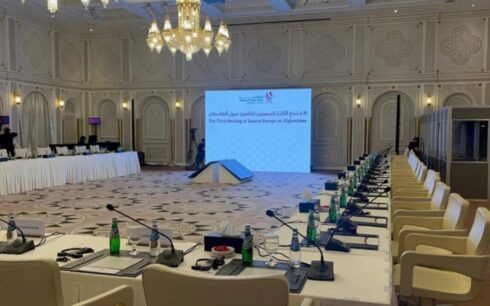International Community at Brussels’ Senior Officials Meeting called for an approach that leads to peaceful and Afghanistan in line with international norms and obligations.
The two-day Senior Officials Meeting, held on June 16 and 17, was convened by the European External Action Service (EEAS) together with the Directorate-General for Civil Protection and Humanitarian Aid Operations (DG ECHO) and the Directorate-General for International Partnerships (DG INTPA).
“Afghan voices—regardless of gender, ethnicity, or religion—must shape the path forward. Regional stability is inseparable from Afghanistan’s future. Sustained technical engagement with the de facto authorities remains necessary to ensure humanitarian access and address urgent basic needs, while advancing a coordinated response to Afghanistan’s complex challenges,” the statement said.
“Technical engagement” with Taliban
The participants said that “sustained technical engagement” with the Taliban remains necessary to ensure humanitarian access and address urgent basic needs, while advancing a coordinated response to Afghanistan’s complex challenges.
The statement said that now entering its fourth year under Taliban rule, Afghanistan faces a severe socio-economic crisis, with approximately 23 million people in need of humanitarian assistance.
“The human rights situation—especially for women and girls—continues to worsen, drawing widespread concern from international actors,” it added.
New aid package for Afghanistan ‘exclusively’ through partners
The EU pledged €161 million in aid for Afghanistan. The participants stressed that the aid is delivered “exclusively through humanitarian partners working directly on the ground”.
The aid package will provide food, healthcare, malnutrition treatment, clean water, sanitation, legal and protection services, emergency education (especially for girls), and disaster preparedness, the statement said.
According to the statement, discussions also highlighted the importance of integrating humanitarian support with longer-term, sustainable solutions.
“Combining immediate life-saving aid with initiatives that foster resilience and stability is essential as needs increase and financial resources dwindle,” the statement said.
The participants explored ways to improve the living conditions of the Afghan population, especially through agricultural development, private sector engagement, and access to finance. They put a strong emphasis on the principled “by women, for women” approach to aid delivery. This is critical for ensuring women’s participation and fostering local economic growth.
The meeting gathered senior officials from the EU Institutions, EU Member States, Gulf countries, major donors, G7 partners, the United Nations, the World Bank, and representatives of Afghan and international civil society and NGOs.





